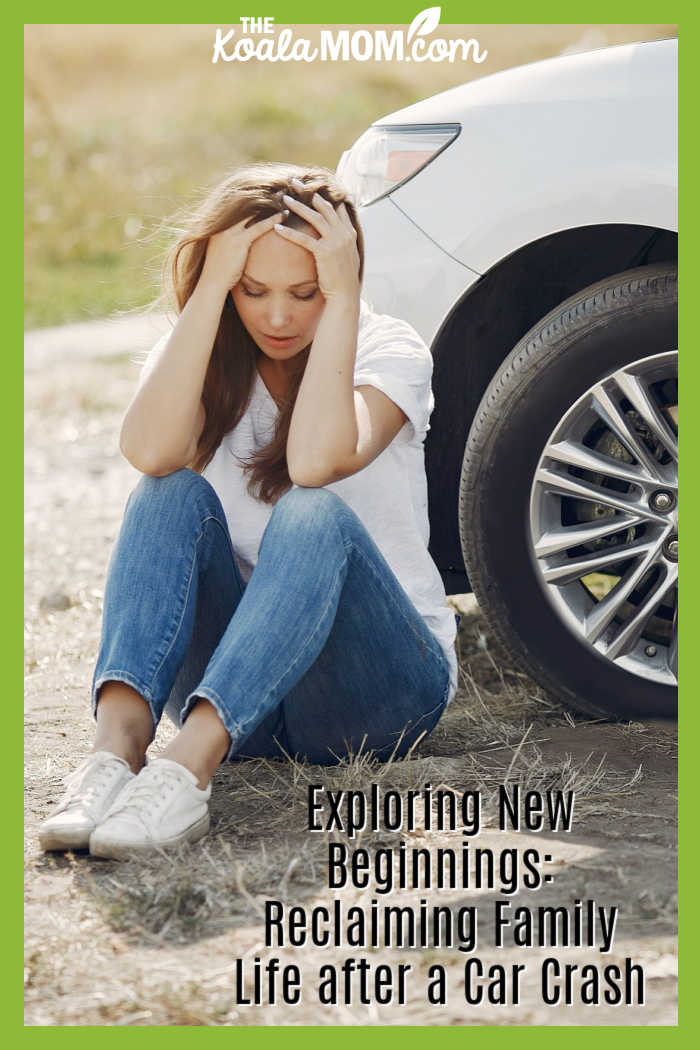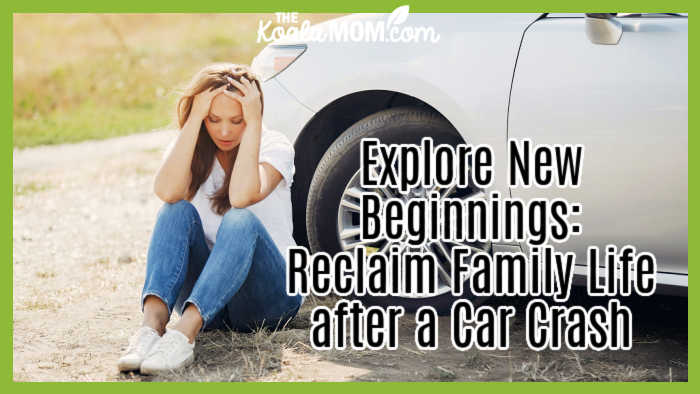A car crash often leaves families grappling with physical injuries, emotional trauma, and the aftermath of a disrupted routine. Reclaiming family life in the face of such adversity becomes a journey of resilience, adaptation, and the pursuit of new beginnings. This article delves into the multifaceted aspects of reclaiming family life after a car crash, addressing the physical, emotional, and logistical challenges families may face.
From navigating recovery and rehabilitation to fostering emotional well-being, exploring new beginnings becomes a testament to the strength of the human spirit and the power of familial bonds.

Seeking Justice and Accountability
In cases where the car crash resulted from the negligence of another party, legal recourse for compensation becomes an important consideration. Consulting with a personal injury legal practitioner can help families understand their rights to navigate the legal process seamlessly. Understanding the intricacies of insurance claims is crucial in ensuring the family receives the coverage they are entitled to.
A legal advocate specializing in personal injury cases can assist in negotiating with insurance companies, advocating for fair settlements, and addressing any disputes that may arise during the claims process. According to seasoned legal practitioners from https://www.belluckfox.com/gloversville/, in addition to physical injuries, family members may experience emotional distress as a result of the car crash.
Legal support can extend beyond financial compensation to include claims for emotional distress, particularly in cases where the trauma has had a significant impact on the mental well-being of individuals within the family.
Navigating Physical Recovery
The immediate aftermath of a car crash often involves emergency medical care and the initiation of rehabilitation processes. From surgeries and physical therapy to occupational and speech therapy, family members may find themselves deeply involved in supporting the injured members through the early stages of recovery.
Physical injuries sustained in a car crash can lead to a range of challenges, from mobility issues to chronic pain. Family members may need to adapt their living spaces, implement assistive devices, and provide emotional support as the injured individuals navigate their new physical realities. This phase requires patience, understanding, and a commitment to collectively overcoming the hurdles posed by the aftermath of the crash.
Healing from Trauma
A car crash can inflict not only physical but also emotional trauma on family members. The emotional toll may manifest as anxiety, depression, post-traumatic stress disorder (PTSD), or a range of other psychological challenges.
Acknowledging and addressing individual and collective trauma becomes integral to the family’s healing journey. Seeking professional mental health support for individuals and their families is essential. Families can navigate the emotional aftermath of a car crash more effectively by openly discussing emotions and seeking professional guidance.
Dealing with Logistical Challenges
The aftermath of a car crash often changes roles and responsibilities within the family. Family members may need to reassess and redistribute tasks to accommodate the physical and emotional needs of those affected. Flexibility and a willingness to adapt become crucial during this period of adjustment.
If the crash resulted in physical injuries affecting mobility, transportation and accessibility become vital considerations. Modifying vehicles, arranging alternative transit, and ensuring that the home environment is accessible are practical steps that can significantly ease the daily challenges faced by the family.
Fostering Resilience and Building New Beginnings
Resilience is the cornerstone of navigating through the aftermath of a car crash. Families can foster a resilient mindset by focusing on strengths, celebrating small victories, and acknowledging progress, no matter how incremental. Recognizing the capacity to adapt and overcome challenges empowers individuals and their families. Establishing realistic short-term and long-term goals provides a roadmap for the family’s recovery journey.
Recreational and therapeutic activities play a vital role in the healing process. Whether it’s participating in adaptive sports, art therapy, or other recreational pursuits, engaging in activities that bring joy and fulfillment contributes to the overall well-being of family members.
As the family adapts to the changes brought about by the car crash, creating new traditions and celebrating milestones takes on added significance. These can be as simple as commemorating the progress made in rehabilitation or establishing new rituals that symbolize the family’s resilience and unity.
The Role of Community and External Support
The journey to reclaiming family life after a car crash can be facilitated by tapping into community resources and support groups. Local organizations, charities, and support networks can offer assistance with practical matters, emotional support, and a sense of belonging during challenging times. Engaging with the broader community by sharing experiences and raising awareness about families’ challenges after a car crash can contribute to a supportive and empathetic environment.

Reclaiming family life after a car crash is a profound journey that requires resilience, adaptability, and a collective commitment to healing. By addressing the physical, emotional, and logistical challenges head-on, families can emerge from the aftermath of a car crash with a stronger, more connected, and renewed sense of purpose. In the face of adversity, the journey towards new beginnings becomes a testament to the resilience of the human spirit and the unwavering support that families provide each other in times of need.

No Responses Yet